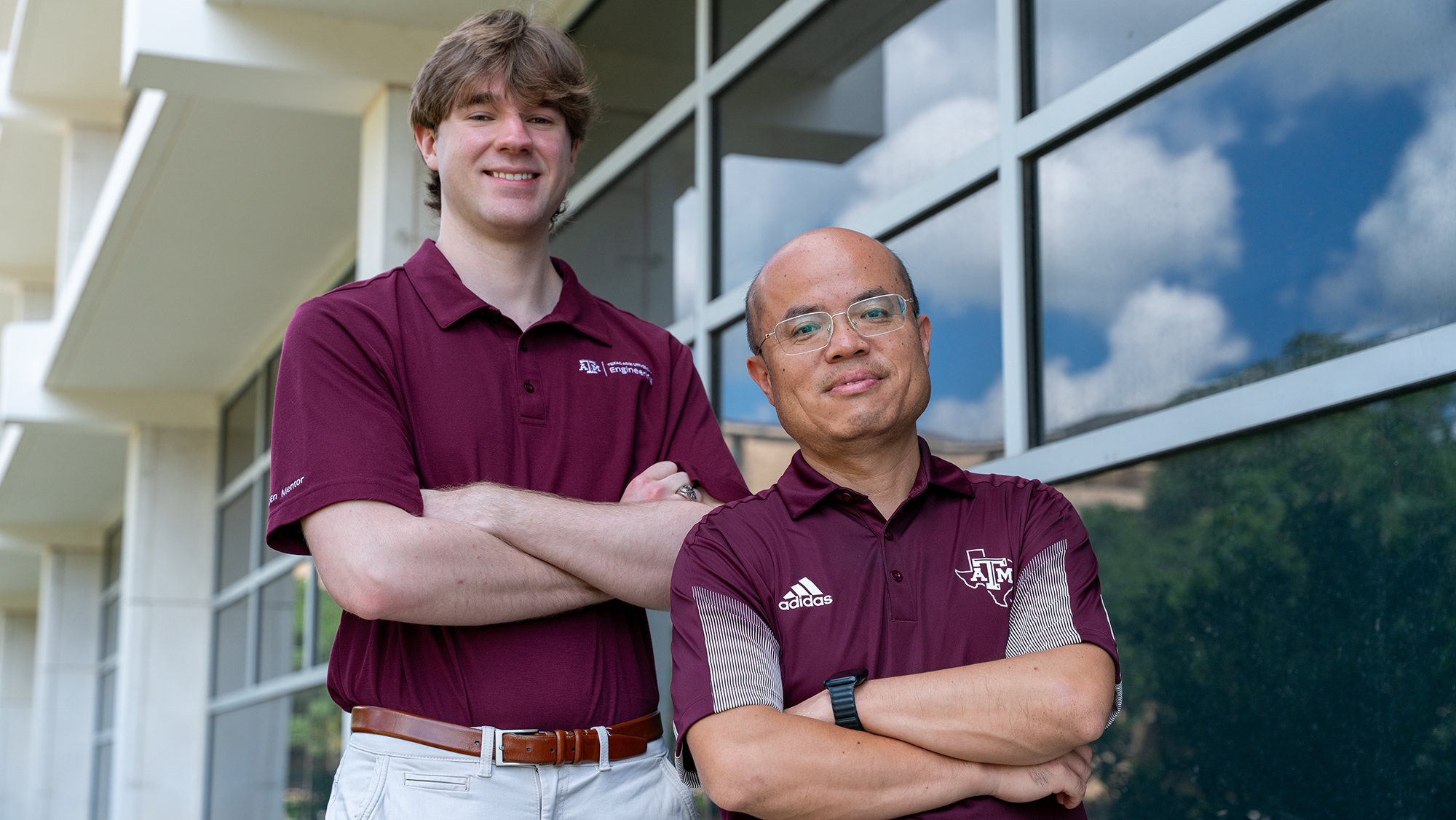
Montgomery Bohde ’26 stands out.
As a senior computer science and engineering major, Bohde is the first author on multiple papers. He also has a Google Scholar page — an uncommon achievement for an undergraduate student. His commitment to research is attracting notice beyond Texas A&M University.
Bohde recently received two national scholarships — the Astronaut Scholarship and the Goldwater Scholarship. Both support undergraduate students who excel at research, are pursuing research careers in science, technology, engineering and math (STEM) fields, and are poised to be leaders in these areas. Bohde was one of only 74 students across the United States selected for the Astronaut Scholarship in 2025. The Astronaut Scholarship is awarded by the Astronaut Scholarship Foundation, and the Goldwater Scholarship is awarded by the Barry Goldwater Scholarship and Excellence in Education Foundation.
“I think it’s a great honor to win each of these awards,” Bohde said. “Each of them has a community of scholars, with events and mentorship programs, and it’s really great to be included in these communities.”
Bohde, who is earning a dual degree in math and a minor in philosophy, works in Dr. Shuiwang Ji’s Data Integration, Visualization, and Exploration (DIVE) Lab. He is interested in AI’s applications for scientific discovery and collaborates with researchers from the Department of Materials Science and Engineering at Texas A&M and Dr. Connor W. Coley, the Class of 1957 Career Development Professor and associate professor of chemical engineering, electrical engineering and computer science, at Massachusetts Institute of Technology.
“Monte exemplifies the Aggie core values of excellence, leadership, and selfless service,” said Dr. Ji, Truchard Family Endowed Chair and professor of computer science and engineering. “His creativity and curiosity are truly extraordinary, and I am confident that we can count on him to make transformative contributions to the world.”
His creativity and curiosity are truly extraordinary, and I am confident that we can count on him to make transformative contributions to the world.
Bohde applies the power of AI to address challenges that chemical engineers and materials scientists face. His research involves developing machine learning models: AI models that improve as they gain experience.
In collaboration with Dr. Xiaofeng Qian, associate professor of materials science and engineering at Texas A&M, Bohde is developing a machine learning model that can perform calculations materials scientists need when designing or discovering new materials.
“We showed that our model achieves remarkable performance on a very wide range of tasks,” Bohde said, using a computational method called molecular dynamics simulation as an example.
“You have a material in certain states, and the atoms will move around over time. [A materials scientist] might want to simulate how that’s going to happen and how the material structure will evolve over time.”
In the chemical engineering realm, Bohde worked on developing an AI model, DiffMS, to address the structural elucidation problem in analytical chemistry. Currently, researchers can pass a fluid sample through a machine called a mass spectrometer, which creates a profile of the molecules in the sample. However, it can be difficult to take this profile and accurately identify the structure of the molecules in the sample. Bohde wants to improve this process.
“My research is about enabling this workflow where you give the [mass spectrometer] a sample and you get out a list of all the molecules in that sample,” said Bohde. “If you figure out how to do that process, now you have a machine where you give it any sort of fluid sample, and you get a list of every molecule in the solution and their frequencies.”
Applications for this process are wide-ranging and could include identifying environmental toxins or creating diagnostic tools for specific types of cancer.